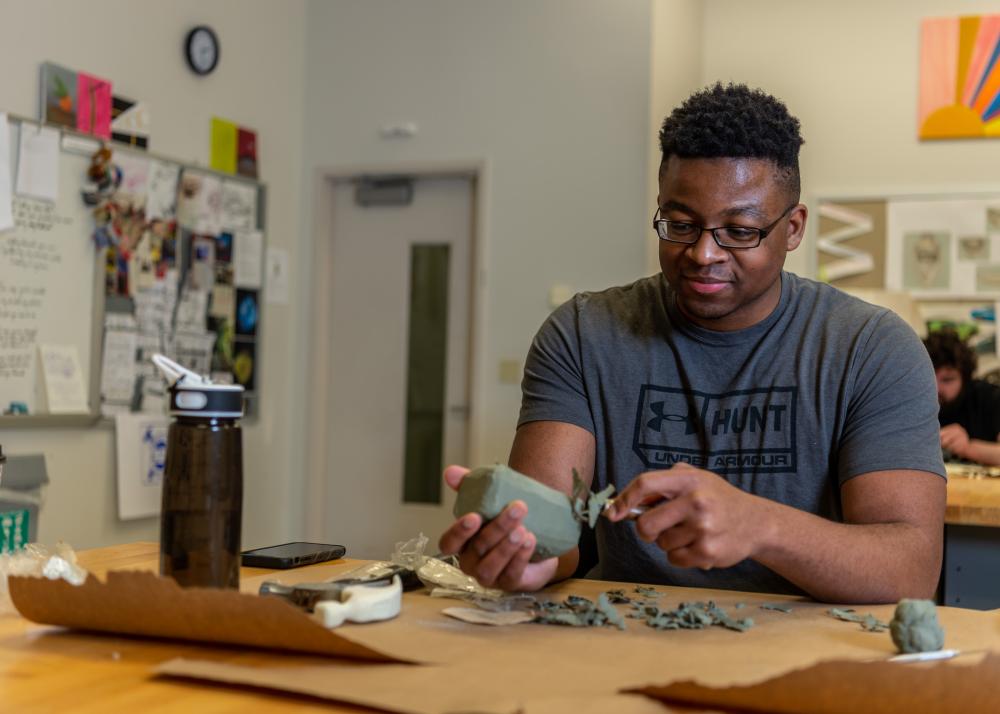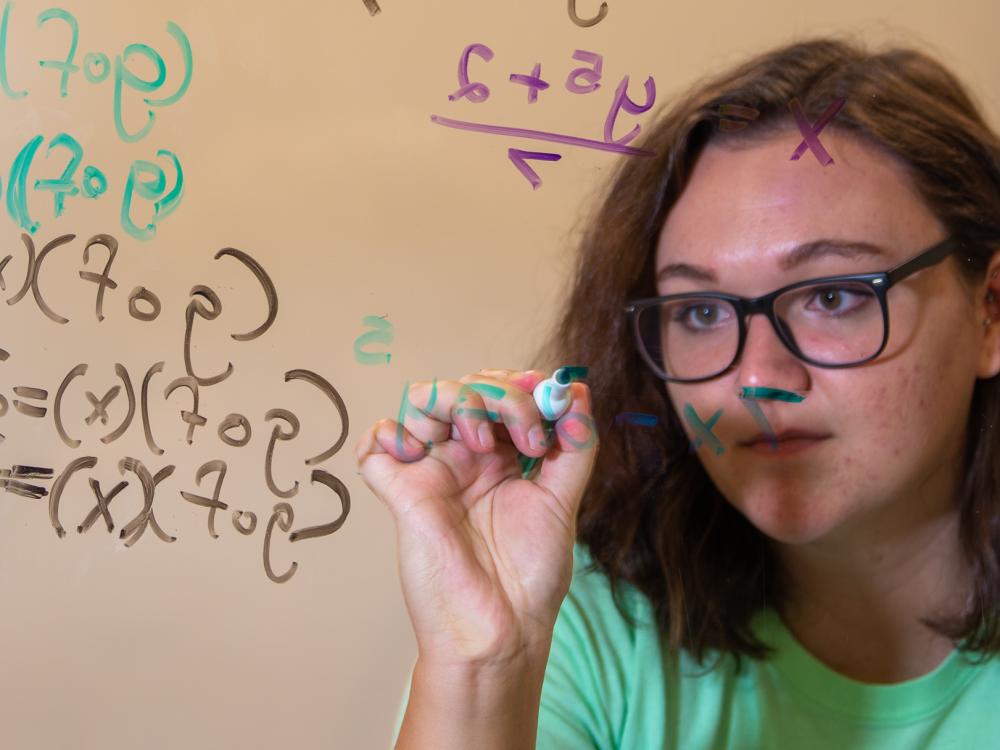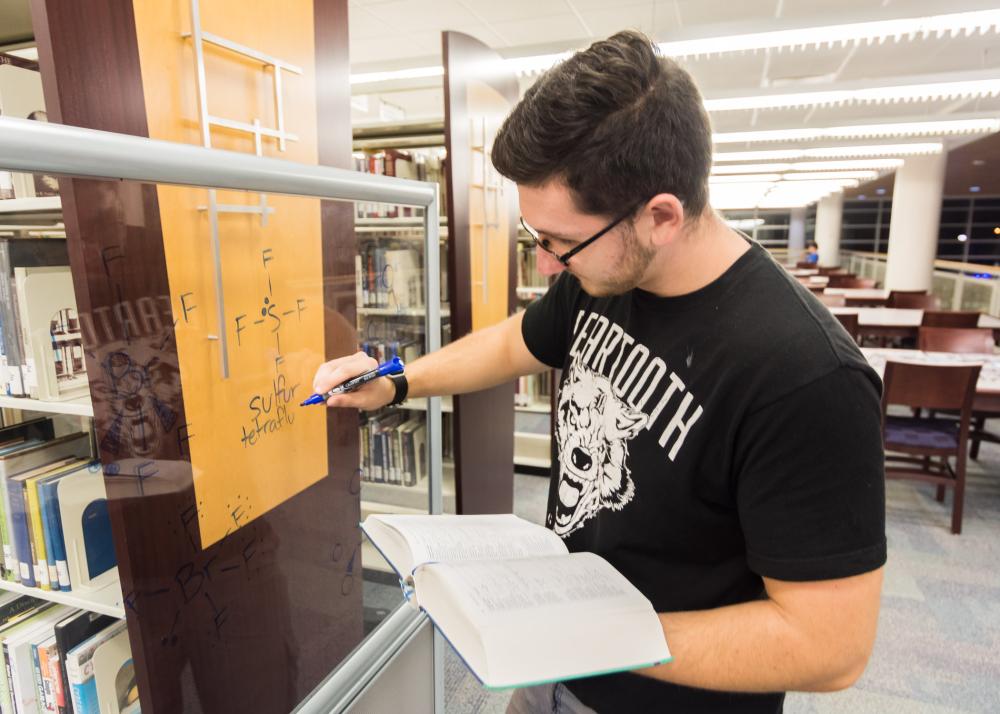Core Courses
The core is intended as a broad foundation that will extend the competence students develop within their majors.
Penn College has established a core curriculum for each of its credentials. Through the courses that satisfy core requirements, students are challenged to integrate knowledge from a variety of disciplines and to extend their learning experience to areas beyond the major. The intended goals of the core curriculum are integrated with and are indirectly measured by students' demonstrated competence in their major courses.
Explore our programs
Art and Design
- painting
- art history
- ceramics
- wood sculpture
- drawing
- bookmaking
- music
- photography
Communication & Literature
- composition
- literature
- intercultural communication
- interpersonal communication
- organizational communication
- reading
- small group communication
- speech
- technical writing
Mathematics
Assists students in acquiring a conceptual understanding of the nature and structure of mathematics, its processes, and applications.
Natural Sciences
Wide variety of science courses that not only provide students with scientific knowledge, but also inspire students to wonder and be amazed by the world around them.
Social Sciences & Humanities
- economics
- history
- humanities
- philosophy
- political science
- psychology
- sociology
- anthropology
Goals
The core courses offered in Business, Arts & Sciences are taken to meet the goals of the Core Curriculum. These goals are:
The ability to find and comprehend information and ideas from others, and to compose spoken and written work that transmits ideas or information to others to create shared understanding.
The ability to work with others to establish objectives, allocate work, measure performance against standards, evaluate results, document the process, and apply what was learned in present and future processes.
The ability to analyze and evaluate situations and arguments from multiple perspectives, including the values that shape our self-identity and our relationships with other people, other cultures, and our environment, in order to form intellectually and ethically defensible judgments.
The ability to explain and use the vocabulary, symbols, and methods of mathematics in order to identify patterns, describe relationships, reason logically, and make informed decisions.
The ability to describe, develop, evaluate, select, and use a wide variety of tools and tool systems in the classroom, the workplace, and in everyday life.
Develops an understanding and appreciation of the creative process and aesthetic experience. It encourages the exploration and analysis of a variety of creative processes and problem-solving strategies, as well as an understanding of the diversity of artistic experience and expression.
Examines the connections between our own lives and the lives of people around the world. It encourages a broad, critical review of our own experience and the experiences of other individuals and cultures, as well as an enhanced understanding of the cultural, social, economic, and political factors that shape our world. In practice, this perspective encourages our students to become global citizens who are prepared to understand, participate in, and shape civic society. Thus, an understanding of the functions and structures of civil societies, as well as the ability to participate in the roles and responsibilities of citizenship are integral to global and cultural diversity.
Provides a foundation for exploring the past with an eye towards understanding the present and thinking critically about the future. Through an analysis of multiple perspectives and sources the interpretative framework of history provides context for understanding and evaluating contemporary institutions, politics, and cultures.
Develops scientific knowledge and understanding as a process characterized by gathering, organizing, evaluating, and analyzing empirical evidence. This perspective also augments quantitative and inductive reasoning skills through a variety of problem-solving strategies. The scientific method, a cornerstone of the natural sciences discipline, encourages a systematic approach to problem-solving characterized by investigating hypotheses that lead to predictable outcomes through repeatable experimentation.





